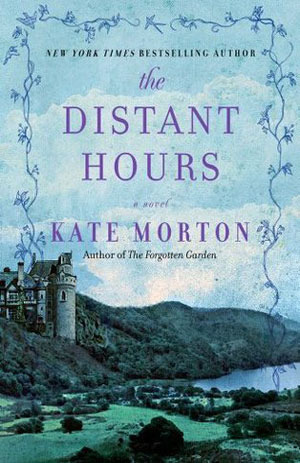I have quite a few friends who recommend more and more of Kate Morton, but I remember one occasion in which somebody highly praised this particular book.
* * *
A long lost letter arrives in the post and Edie Burchill finds herself on a journey to Milderhurst Castle, a great but moldering old house, where the Blythe spinsters live and where her mother was billeted 50 years before as a 13 year old child during WWII. The elder Blythe sisters are twins and have spent most of their lives looking after the third and youngest sister, Juniper, who hasn’t been the same since her fiance jilted her in 1941.
Inside the decaying castle, Edie begins to unravel her mother’s past. But there are other secrets hidden in the stones of Milderhurst, and Edie is about to learn more than she expected. The truth of what happened in ‘the distant hours’ of the past has been waiting a long time for someone to find it.
Morton once again enthralls readers with an atmospheric story featuring unforgettable characters beset by love and circumstance and haunted by memory, that reminds us of the rich power of storytelling.
MY THOUGHTS:
Kate Morton reminds me of a younger, more up-to-date Daphne du Maurier, because she writes with that same sense of spooky nostalgia. In part of this story, she even used the line, 'Last night I dreamed I went to Milderhurst.' Doesn't that sound familiar? She's one of those authors I don't want to skim over the descriptions to cut to the chase, because her beautiful prose and imagery is such a pleasure to read. It doesn't matter when the story gets slow, because I'm still absorbing every word.
In this novel, Edie, a young editor, longs to discover the tragic history of three elderly sisters who live alone in their family castle. She suspects her mother, Meredith, may have played some part in it, as she's always been tight lipped about the time she spent there as a war evacuee between 1939 and 1941.
The backstory is told in several flashbacks to earlier times when the sisters' father, Raymond, an eccentric fiction author, was alive. There's something secretive about the way he composed his famous novel, not to mention the furtive way the sisters behave around each other. There are the twins, Persephone and Seraphina (Percy and Saffy). Percy is the decisive, controlling alpha twin with a strong protective love for her family and home. Saffy is the milder, gentler of the two, with her love of writing and beauty. They care for their younger half-sister Juniper, who supposedly went mad because her fiance deserted her for another woman.
While the story was being told from others' points of view, I didn't like Juniper at all. Her family seemed to have indulged her into a spoiled brat. It's annoying when people behave as if they're exempt from pulling their weight, and leave a wake of destruction behind them, because 'that's just them.' However, when I got into her own head space at last, I changed my opinion of her.
I liked young Meredith, a good representative for those who may come across as distant and remote, while the aloofness merely masks an extra sensitive heart. I didn't like Raymond, for reasons you'll see if you choose to read this book. I've noticed that in Kate Morton stories, readers often know even more than the characters by the end. The characters aren't in the position to look deeply into each others' most secret hearts, as we are.
I'd have to give this book 5 stars for description and readability, but the ill-fated, gothic nature of this plot got me down a little, so I'd give it less for story line. I've now read two of Morton's novels, and the blurbs for several others. It's enough to make me think that if anyone binged on them one after another, the themes and plots might eventually blend into one. I know it's her brand, but I don't think I'll read any others for a while, at least until I'm in the mood for something that's bound to contain dark, heart-breaking family secrets, along with twenty-first century folk with a mind to get to the bottom of them. There's a brand new one, which will be on my list to read some time.
But finally, I've just to say that I appreciated Juniper's youthful approach to her writing. Getting it all down on paper and out of her system was the main thing for her, regardless of whether or not others ever read it. My first response was, 'What a great attitude. Good on her,' and then I realised that millions of bloggers all over the world now follow her example, so perhaps Juniper was just years ahead of her time, and perhaps we all deserve a pat on the back.
4 stars


No comments:
Post a Comment